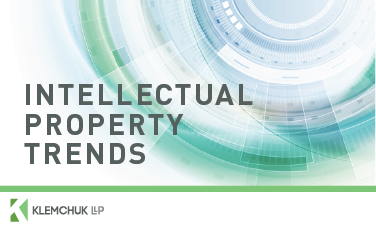Originally published by Peggy Keene.

APIs and Copyright Law: Supreme Court to Decide Whether APIs Are Copyright Protectible
The Supreme Court is scheduled to hear an incredibly important case between Oracle and Google regarding whether or not APIs can be protected under copyright law.
Oracle Accuses Google of Copying Java API, Claiming Copyright Infringement
In the case at hand, Oracle has accused Google of copying the API of Oracle’s Java programming language. For those unfamiliar with the terminology, an API or “application programming interface” is basically the coding language that a computer relies on to execute tasks. In other words, an API is the language that a computer relies on to know what to do. Each API houses its own defined terms and vocabulary that includes named commands organized by grammatical structures that designate how the commands will be executed.
In this case, to execute or perform specific tasks using Java, a programmer must know “how to code in Java.” In other words, the programmer must know the predefined terms, commands, and specific grammatical structures unique to Java.
Oracle claims that the alleged copyright infringement occurred when Google copied the Java API commands wholesale in order to encourage programmers fluent in Java to program on Google’s Android operating system. Oracle claims that Google knowingly reimplemented Java in order to entice programmers that were well-versed in Java into bringing their software and expertise to Google.
Reimplantation of APIs and Copyright Law Have Not Been an Issue in the Past
Google and experts in the field alike argue that reimplantation of APIs is common in the technology industry. For example, it is common knowledge that programmers that seek to interact with specific platforms or operating systems must be well-versed in that specific coding language. Take as another example, Amazon’s API that controls its data storage platform, S3. In order to store or retrieve files from Amazon’s cloud services, the programmer must be familiar with the commands, vocabulary, and grammatical structures specific to S3. And as such, in order to compete with Amazon’s cloud services, competitors often “reimplement” Amazon’s S3 API.
Thus, if Oracle convinces the Supreme Court that the Java API is protectible under copyright, this precedent would mean that competitors that reimplement other APIs, like in the aforementioned S3 example, would be similarly guilty of copyright infringement.
When Does API Reimplantation Rise to Level of Copyright Infringement?
A further wrinkle is added to the case because copyright law itself prohibits the mere translation of a protected work into another language. As such if the Supreme Court sides with Oracle, there is the potential that even if competitors argue that they have made changes or created their own language to interact with the established APIs, owners of the APIs in question could argue that these changes constituted mere translation, which is not a defense under copyright law. And ironically, Oracle itself offers its own reimplementation of Amazon’s S3 API.
While experts in the field note that there are limits and successful partial reimplementation of APIs that would not rise to the level of the infringement claimed at hand, the line of demarcation in unclear. As such, a win for Oracle could make it so that specific companies with popular, established APIs could hold these particular APIs hostage by pricing them at exorbitant prices for licensing.
Takeaways Regarding Reimplantation of APIs and Copyright Law
The outcome of the Oracle case against Google will result in important copyright law precedent regarding APIs. Should the Supreme Court side with Oracle, allowing an API to be protected under copyright law could:
-
make the reimplantation or creation of compatible languages specific to established APIs prohibitively expensive for smaller companies;
-
have a chilling effect on the technology industry by discouraging competition and innovation in the API field; and
-
end up passing the costs of all of this down to end-users and consumers.

technology & data
You may also be interested in:
Sign up for and explore our content and thought leadership here.
About the Firm:
Klemchuk LLP is a litigation, intellectual property, transactional, and international business law firm dedicated to protecting innovation. The firm provides tailored legal solutions to industries including software, technology, retail, real estate, consumer goods, ecommerce, telecommunications, restaurant, energy, media, and professional services. The firm focuses on serving mid-market companies seeking long-term, value-added relationships with a law firm. Learn more about experiencing law practiced differently and our local counsel practice.
The firm publishes Intellectual Property Trends (latest developments in IP law), Conversations with Innovators (interviews with thought leaders), Leaders in Law (insights from law leaders), Culture Counts (thoughts on law firm culture and business), and Legal Insights (in-depth analysis of IP, litigation, and transactional law).
Curated by Texas Bar Today. Follow us on Twitter @texasbartoday.
from Texas Bar Today https://ift.tt/39ebyrD
via Abogado Aly Website
No comments:
Post a Comment